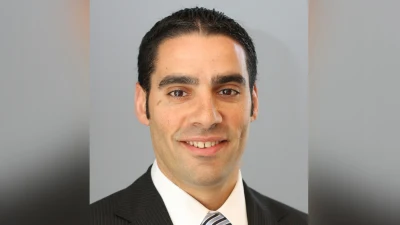US nurtured breeding ground for ‘fat tail’ risk


THE extraordinary events of 2008 can be described as stemming from ‘fat tail’ risk. I have always thought that such an explanation provides little comfort because at the end of the day we are still confronted with business models that no longer make sense and assets and wealth that have simply disappeared.
In the US, we have seen the rescue or disappearance of a whole range of major financial institutions that had previously been celebrated household names. In Europe we have seen the same.
Turmoil escalated into October to the point where the global banking system would probably have collapsed without dramatic government intervention.
The risk of collapse may have receded but there has been no escaping the associated credit crunch that is now dragging down economic activity around the world.
In the US, wealth has been destroyed, credit has been restricted and discretionary consumer spending is in sharp decline. Unemployment is rising and is likely to rise further.
The rest of the world is struggling with home grown credit problems as well as recession in the US. Notwithstanding their bright longer-term prospects, the boom economies of Russia, Eastern Europe and China are struggling.
With so much turmoil and uncertainty, markets have taken fright.
How could all of this have happened? The world has lived through numerous boom/bust cycles and normally the bust does not threaten to bring down the global banking system. Greed and collective delusion are basic human traits, but it is hard to believe that people have become greedier and even more delusional.
Prudential management cannot prevent losses from occurring but it should be able to stop systemic failure.
Unfortunately, the US decided to conduct a major experiment with how they regulate their financial system and this experiment had direct and indirect effects not only on the US, but on the rest of the world.
The experiment was based on the belief that financial corporations would not knowingly operate in a way that would imperil their very existence. Shareholder scrutiny and market disciplines were seen as powerful influences that would force companies to pay appropriate attention to risk.
The Glass Steagall Act was a depression era regulatory device that separated banks, insurance companies and broker/dealers. With its repeal in 1999, large US banks could underwrite and trade instruments such as MBSs, CDOs and SIVs.
In 2004, the US SEC relaxed the capital constraints on Bear Stearns, Lehman Bros, Merrill Lynch, Morgan Stanley and Goldman Sachs in exchange for subjecting themselves to voluntary regulation.
By 2008, these five institutions were operating with leverage of 30 to 35 and were fuelling the growth in credit derivatives and structured investment products around the world. The fact that all five of these institutions have disappeared or have transformed themselves into banks regulated by the Federal Reserve is testament to the fact that they and the US regulatory authorities had little understanding of the risks inherent in what they were doing.
It is therefore not true to say that the current global financial crisis is due to a static regulatory structure being finally overwhelmed by the financial system.
The world is now left to clean up the mess. The real economy will suffer a sharp downturn but it will recover.
There needs to be a regulatory response, particularly in the US, but we need to be vigilant that we do not burden the financial sector with unwarranted distortions and burdens.
My instinct tells me that countries that think clearly about the causes of current difficulties and do not overreact will be well advantaged compared to countries that succumb to misguided regulatory zeal.
Don Russell is the global investment strategist at BNY Mellon Asset Management Australia. The views in this article are those of the author and not necessarily those of BNY Mellon Asset Management.
Recommended for you
ASIC has cancelled a Sydney AFSL for failing to pay a $64,000 AFCA determination related to inappropriate advice, which then had to be paid by the CSLR.
A former Brisbane financial adviser has been charged with 26 counts of dishonest conduct regarding a failure to disclose he would receive substantial commission payments for investments.
Inefficient data processes and systems mean advisers are spending over half of their time on product implementation and administration at the expense of clients, according to research.
With the regulator announcing its enforcement focus for 2025 last week, law firm Hall & Wilcox examines the areas which have dropped down the list in priority for the regulator.














